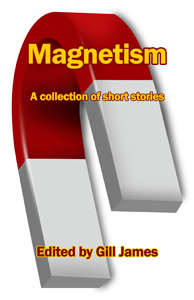Image Credit: As ever, images are from Pixabay or Pexels unless otherwise stated.
Facebook – General – and Chandler’s Ford Today
My CFT post this week is all about the links between books and radio. I also share the radio interview links for YA author #RichardHardie and myself when we were on #ChatandSpin radio recently.
(I also share the link with Wendy H. Jones‘ marvellous podcast The Writing and Marketing Show where I discussed, well what else, flash fiction!). This is a post you can read AND listen to! Hope you enjoy.
It was good fun to take part in the Chat and Spin radio interview, as well as being a guest on Wendy H Jones’ The Writing and Marketing Show.
(For more see my CFT post this week called Books on the Radio – https://chandlersfordtoday.co.uk/books-on-the-radio-local-a…).
Now I’ve mentioned before that preparation is key and it is. I prepared too much material for both shows but (a) I know I can use that material at some point and (b) it settled my nerves a bit knowing I had material to hand. I can’t overstate the importance of (b) there!
I hope to put some of that material on my website at some point (but you can still check out my website anyway meantime!!). See https://allisonsymescollectedworks.com/
I also hope after the Waterloo Arts Festival event I’ll be involved in on 12th June to put the video I made for that on my website too.
And yes preparing material for future website usage is also a good idea and helps to keep that fresh and keep followers interested.
Am at the very happy stage of the second edit on my Tripping the Flash Fantastic, which is due out later this year. Also planning my blurb and cover material. All good fun to do!
(Will be following my own advice on a recent CFT post in that I hope to have a cyberlaunch in due course and I will be preparing material for that too. It is always better to have too much material and not use all of it than be in a panic on the night because you haven’t got enough!).
Have also selected another writing competition to have a crack at. Deadline is not until July but that gives me plenty of thinking time. (I will set my own deadline for this to be the end of June so I make sure the story is in well ahead of time and I have time for that extra polish which can make all the difference beween a piece being accepted or not).
When I don’t have a lot of time to write, I draft blog pieces and build up a stock of these. It means I’ve got something ready to edit and send off where appropriate as I blog for the Association of Christian Writers and sometimes have pieces appear in their journal, Christian Writer.
I also like to have pieces to hand that I can adjust and turn into articles for Chandler’s Ford Today.
So always something to do then and that’s just how I like it!
How do you feel when you get to the end of a first draft?
Relieved that part is over?
Sorry that part is over?
Dreading the edit(s) (especially as you know there’ll be more than one!)?
Wishing it hadn’t taken so long?
For me, it is a combination of the first and last ones! So over to you then. What is your reaction the moment you write The End for the first time?
Facebook – General – and
Association of Christian Writers – More than Writers –
Honest Writing
A busy night for me this evening as it is my turn on the More than Writers blog spot. This is the Association of Christian Writers’ blog and my piece this time is called Honest Writing. Hope you enjoy.
Twitter News – @AllisonSymes1
I’m slowly learning to use Twitter more and I thought I’d share something here which is also a good piece of marketing (and great fun to take part in!).
The only book I couldn’t get into the above tweet was Magnetism where I have a short story. This book was produced by Gill James and features the work of Cafelit and Bridge House authors. It is very much meant to give a flavour of what we do. To get a FREE COPY of this book, you just need to sign up to Books, Books, Books.

Facebook – From Light to Dark and Back Again
The “oomph” moment in a flash fiction story can take different forms and be in varying places in the tale.
The whole mood of my story Calling the Doctor (see book trailer below!) changes on the very last word. This is why it is one of my own favourite pieces.
One of the challenges of flash is to find the right “oomph” moment for your character and to place it in exactly the right place in the story.
In this case, had I placed that particular word earlier in the story, the impact of the story would have been severely diluted.
But sometimes I start a story with a powerful moment where you know from that point onwards, something has got to change and quickly. The fun of those stories is in finding out what that change is and what its consequences are – and there are always some! – and it is just as much fun finding that out when you’re writing the tales!
My CFT post this week is about Books on the Radio and I’ll be sharing links to radio interviews on Chat and Spin Radio which YA author, #RichardHardie, and I took part in recently. I’ll also be looking at the general role of books on the airwaves. Link up on Friday.
Naturally for the radio interview I was waving the flag for flash fiction and books being a perfect form of escapism. And whether you write them or read them or do both, that escapism is so welcome right now!
My favourite flash stories are the ones that make me smile or laugh though. I do like the emotional ones where you really want the character to do well and they can’t/don’t but, for me, you can’t beat a good laugh.
Flash lends itself well to humorous stories because they often work so well when kept short. Flash helps a lot there!
Fairytales With Bite – Making Space
I believe fairytales and fantasy fills the spaces between reality and chaos. Why? Because so many tales in these genres reflect what we can be like, while others give strong moral messages. Why do we need such things?
- To guide us as to what our behaviour should/should not be;
- To show us what life could be like without kindness, gratitude etc. Would you really not want things to come right for Cinderella, for example?
As writers, we also need to give our characters space to develop in themselves and as part of the plot development. A character who doesn’t change will be of little interest to readers.
This World and Others –
How Do You Know When A World Is Going To Work?
I would say that a fictional world has worked for me when I can:-
- Spot connections between the fictional world and the real one we know here.
- See what is better on the fictional world and wish we had it here. (Flying carpets anyone? No emissions but I’ve always thought the landing on those things must be on the rough side and there is definitely no in flight entertainment. You’d be hanging on for grim life, yes?).
- See what is worse on the fictional world and be glad it’s not coming here.
- Can understand what the lead character has to contend with and how the setting helps/hinders them.
- Can see further stories being set in that world, even if it is not with the same characters. That is always a good sign. For me, the Discworld series by Terry Pratchett really took off when it could “host” the Rincewind stories, the Vimes ones, the witches ones and so on. I also liked looking for the connections between the different series. For example a character would refer to another one not appearing in the story. It wouldn’t matter if you hadn’t read the other story. Referring to other characters like that implies a life above and beyond the immediate world of the story you are reading and that is great.















![Prompts 2020 by [Gill James]](https://m.media-amazon.com/images/I/315BC5RzclL.jpg)































































































































































































































